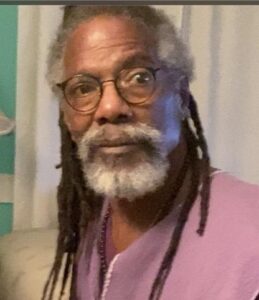
There is no monolithic African American culture; there is considerable diversity within a multilayered population. Notwithstanding the cultural, educational, and socio-economic stratifications within, belief in the Bible is a central tendency. By in large, African Americans are believers and adhering to the Bible; this is a fact borne out by statistical data from Pew Research. Black Americans are generally more religious than their white counterparts owing to their history of hopelessness and optimism that Biblical teachings inspire. Within the African-American population, 66% are protestant, 6% are Catholics, 3% are of other religions like the Jehovah’s Witnesses, and 3% have non-Christian affiliations, like Islam. Research conducted by Jeff Diamant, a senior writer/editor, focusing on religion at the Pew Research Center reports, that 81% of African Americans believe, according to the Bible; that God has the power to control what goes on in the world. Continuing, 74% are of the opinion that God is the judge of all, 68% believe that God determines what will happen in their lives, and 48% report that God talks to them directly. In light of these statistics, it is plausible to conclude that the Bible is, perhaps the most potent elixir given to Africans once they reach these shores. The Bible has been and remains an important element in the shaping of the African American consciousness. This notwithstanding, the Bible, nor religion, has not afforded African Americans an experience of oneness with their Christian counterparts in social status, and equivalent human dignity. The 21st century is the Age of Enlightenment, an unprecedented historical period in which, superstitions are questioned, examined, and discarded. As an educator, philosopher, critical thinker, and author, I am writing to suggest that the preeminent status given to the Bible among African Americans be re-evaluated.
It is time to acknowledge that while extolled and glorified, the Bible does not have the ability to raise consciousness and elevate our people out of the doldrums of mental slavery, self-hatred, and violence that characterize our historical posture. Continuing, African Americans must acknowledge that prior to being enslaved, our society was not overshadowed by stories that did not reflect our identity or history. Nevertheless, African societies functioned harmoniously in concert with the laws of nature. There were no guns, crime, murder, abortion, or the abuse of women and children. There wasn’t a need to conceive soteriological doctrines such as salvation and vicarious blood atonement. These theological concepts were imposed on Africans by the same people who enslaved them and were acculturated during the wretched days of slavery. Until the present day, these doctrines are embraced and perpetuated. On the pre-missionary African continent, owing to the synchronicity with nature, there was a level of morality and god-consciousness exhibited in the collective consciousness. The modern-day English translation of the King James Bible is a compilation consisting of writings from two different groups; the Israelites and the Greeks. Public information is presented in two forms; scientific data, and stories. Data is fact and statistics collected together for reference and analysis. A story, on the other hand, is a personal representation of the facts of a matter, an account of imaginary or real people or events told for entertainment, adventure, identity, and morality. In light of these definitions, it seems to this author, that the Bible is a book of stories. The stories are not actual accounts of historical facts, although some facts may be included. The stories which reference God are didactic, intended to teach ethics and morality. I argue, however, that a thought about God, or a book about god, is not the experience of God, any more than a picture of food can alleviate hunger or satiate a hungry man. The Bible cannot produce the experience of god even though it is widely distributed and read conscientiously. An ideal society will flourish when its citizens are empowered by the direct experience of God. What is the definition of God? In the book of stories, the Bible presents an anthropomorphic, gender-based deity. This notion is a vestige of the age of slavery when god was depicted as a bearded man, up in the sky making judgments of humanity. In the Age of Enlightenment, the 21st century’s paradigm is scientific rather than theological. The concept of God is no longer anthropomorphic, but it has become an acronym for the generator, organizer, and dispenser of existence. The word, God references the infinite unbounded field of pure potentiality, an unmanifest realm that is characterized by a three-in-one structure; the knower, known, and process of knowing. By learning how to transcend the thought of God, the reality of God beyond thought is directly experienced. Transcendence opens human awareness to the home of all the laws of nature allowing the infusion of divinity into the mind. This divinity then becomes the basis of an individual’s being, thinking, and action. The stories about God in the Bible, on the other hand, inform only the intellect. In order for behavior to change, the mind and heart must be transformed through a direct experience of Pure divinity. The quest for personal meaning, truth, and enlightenment has evolved to a level that compels Hebraic literacy in Lashon Ha Kodesh (The holy tongue). While Bible stories activate emotional sentiments and cause mood-making, they in no way, refine the reader’s neuro-physiological mechanisms of perception sufficiently to experience the divinity of God. It is this author’s view that in order to optimize the spiritual potential inherent in the African American soul, Biblical stories should be exchanged for the experience of God. Instead of reading about God, the African-American must become conscious of the ultimate reality that is God. It is man’s incarnation objective to become unified with that reality. The scientific research of Dr. Keith Wallace, in the 20th century, validated a fourth state of consciousness. This scientific discovery ushered humanity into the portal of the inner kingdom of heaven. Black Americans are found still floundering in churches, engaging in antagonistic street corner debates with one another about a book they did not author; while our communities are replete with killing, violence, broken families, and the lack of brotherly love. The Bible has become the quintessential source of division; it profits little spiritually. Arguing about the Bible militates against the experience of our spiritual Oneness and ensnares the soul in divisive jargon. The kingdom of God is within everyone. The African American must educate himself regarding the authentic nature of the Self. This can only be achieved when two important philosophical questions are addressed: (1) Beyond the relative biological level of color, Who Am I, and (2) What is the objective basis for the subjective experience of, “I”? By answering these two questions, African Americans will inevitably, be led to experience the unified field of consciousness, free from duality, ever firm in purity, and independent of possessions. This is the kingdom of heaven within; the source of infinite wisdom. A book about God is not the experience of God.
Dr. Yisrael offers an individualized course of instruction in the theory and practice of his self-reflection Technology of Consciousnesses. Interested parties should contact: Babayshua@gmail.com


